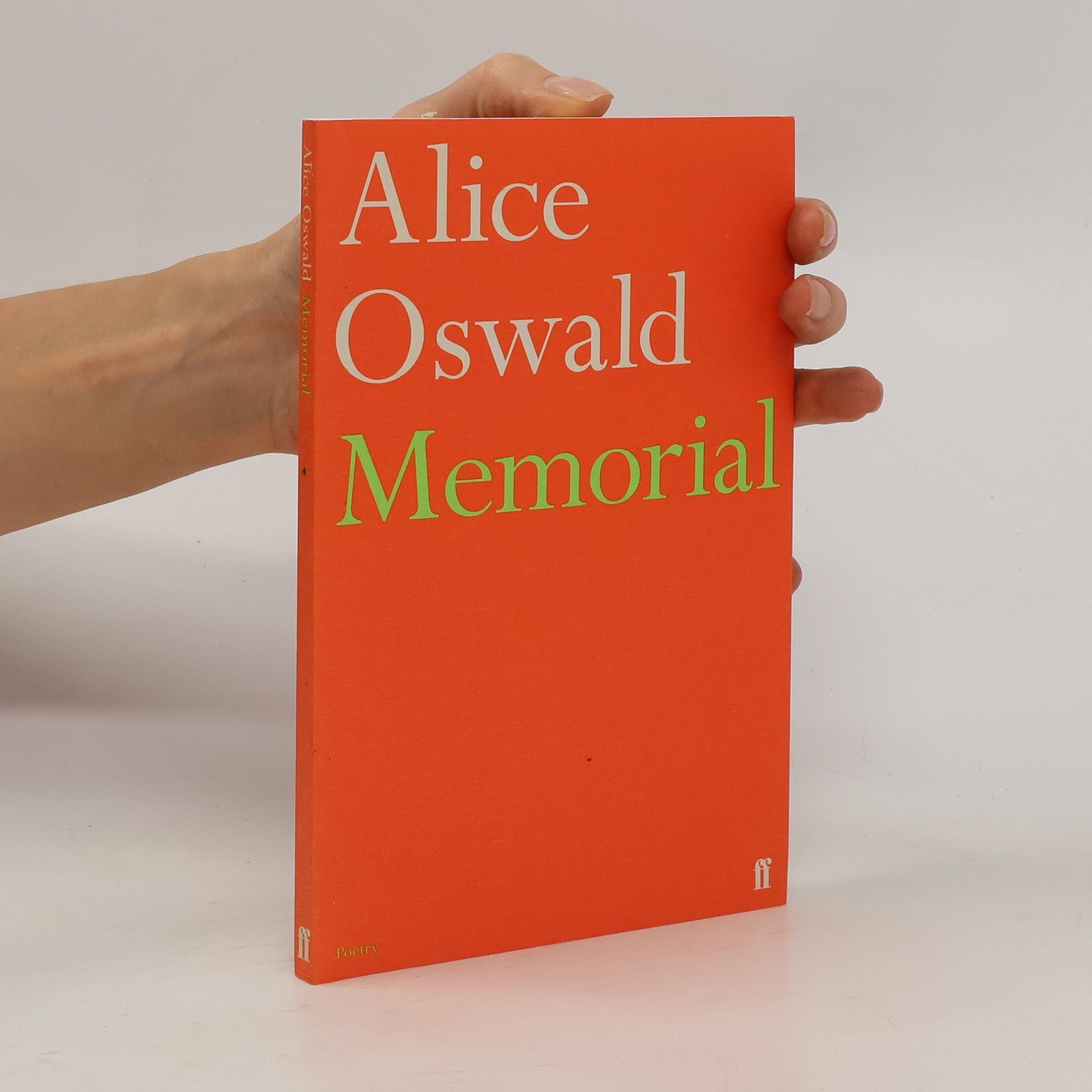To retrieve the poem's energy, Alice Oswald has stripped away its story, and her account focuses by turns on Homer's extended similes and on the brief 'biographies' of the minor war-dead, most of whom are little more than names, but each of whom lives and dies unforgettably - and unforgotten - in the copiousness of Homer's glance.
Alice Oswald Livres
Alice Oswald est une poétesse britannique dont l'œuvre explore la mythologie classique et le monde naturel. Ses vers sont réputés pour leur musicalité et leur capacité à capturer l'essence d'un moment et d'un paysage. Oswald explore fréquemment des thèmes tels que la mémoire, le temps et le lien entre l'expérience humaine et la nature. Son style se caractérise par son urgence et un profond sens du lieu.






A collage of water stories from the Odyssey, reconstructed as a mesmeric and hallucinatory book-length poem by acclaimed poet Alice Oswald. In Memorial, her unforgettable transformation of the Iliad, Alice Oswald breathed new life into myth. In Nobody, she returns to Homer, this time fixing her gaze on a minor character in the Odyssey—a poet abandoned on a stony island—and the sea that surrounds him. Familiar voices drift in and out of the poem; though there are no proper names, we recognize Helios, Icarus, Alcyone, Philoctetes, Calypso, Clytemnestra, Orpheus, Poseidon, Hermes, and the presiding spirit of Proteus, the shape-shifting sea-god. As with all of Oswald’s work, this is poetry that is made for the human voice, but here the language takes on the qualities of another element: dense, muscular, and liquid. Reading Nobody is like watching the ocean; we slip our earthly moorings and follow the circling shoal of sea voices into a mesh of sound and light and water—fluid, abstract, and moving with the wash of waves.
Weeds and Wild Flowers
- 67pages
- 3 heures de lecture
Weeds and Wild Flowers is a magical meeting of the poems of Alice Oswald and the etchings of Jessica Greenman. Within its pages everyday flora take on an extraordinary life, jostling tragically at times, at times comically, for a foothold in a busying world.
Dart
- 64pages
- 3 heures de lecture
The voices are wonderfully varied and idiomatic - they include a poacher, a ferryman, a sewage worker and milk worker, a forester, swimmers and canoeists - and are interlinked with historic and mythic voices: drowned voices, dreaming voices and marginal notes which act as markers along the way.
Woods etc.
- 64pages
- 3 heures de lecture
Extending the concerns of Dart and written over a period of several years, these poems combine abrupt honesty with an exuberant rhetorical confidence, at times recalling the oral and anonymous tradition with which they share such affinity.
Falling Awake
- 96pages
- 4 heures de lecture
Winner of the 2016 Costa Poetry Award Shortlisted for the 2016 T. S. Eliot Award Shortlisted for the 2016 Forward Prize A Daily Telegraph / Guardian / Herald / New Statesman / Sunday Times / Times Literary Supplement Book of the Year Alice Oswald's poems are always vivid and distinct, alert and deeply, physically, engaged in the natural world. Mutability - a sense that all matter is unstable in the face of mortality - is at the heart of this new collection and each poem is involved in that drama: the held tension that is embodied life, and life's losing struggle with the gravity of nature. Working as before with an ear to the oral tradition, these poems attend to the organic shapes and sounds and momentum of the language as it's spoken as well as how it's thought: fresh, fluid and propulsive, but also fragmentary, repetitive. These are poems that are written to be read aloud. Orpheus and Tithonus appear at the beginning and end of this book, alive in an English landscape, stuck in the clockwork of their own speech, and the Hours - goddesses of the seasons and the natural apportioning of Time - are the presiding figures. The persistent conditions are flux and falling, and the lines are in constant motion: approaching, from daring new angles, our experience of being human, and coalescing into poems of simple, stunning beauty.
Archipelago Anthology
- 240pages
- 9 heures de lecture
Archipelago is one of the most important and influential literary magazines of the lasttwenty years. Archipelago: A Reader gathers poetry, prose and visual art in clusters grouped around the Irishand British archipelago, with contributions from an array of significant artists.
In der Lyrik der Gegenwart ist Alice Oswalds Werk einzigartig; ein Plädoyer für die Dimension des Hörens, ein Lauschen auf die feinen lautlichen Differenzen und ein Rückgriff auf eine Lyrik, deren lebendige Farbigkeit sie für uns neu entdeckt: Homer steht wieder am Horizont. Alice Oswalds Gedichte entstehen aus der Stimme. Wie Homers Epen sind sie gesprochene Ereignisse. Auf ihren Lesungen trägt sie ihre Lyrik stehend und auswendig vor. Ihre Musen sind das Auge und die Erinnerung. Und trotzdem, es ist eine Lyrik der großen Bögen: In »Memorial« gedenkt sie den Fußsoldaten, die bei Homer fallen – nicht den Helden gilt ihr Augenmerk, sondern den Opfern in den Fugen der Geschichte. In einem anderen Text verwandelt sie mit Homers Gleichnissen im Gepäck das Erwachen des Lichts in ein Epos: »46 Minuten im Leben der Morgendämmerung«. »Ungeheuer gelungen … Unvergesslich.« Teju Cole »Jedes meiner Bücher markiert eine Grenze, über die ich in das nächste Land weiterziehe.« Alice Oswald
